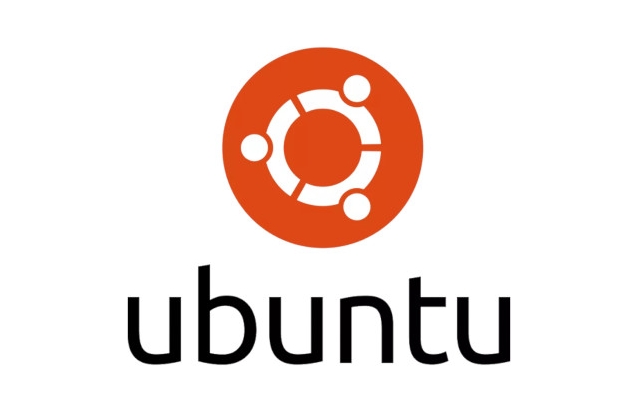こんにちは、makiyaです。
最近、動画編集を少し始めてみようと思い、Ubuntu 24.04で人気の無料動画編集ソフト「OpenShot」を使ってみることにしました。
ですが、UbuntuのソフトウェアセンターからインストールできるOpenShotは、どうやらかなり古いバージョンのようです。
ヘルプ → OpenShotについてでバージョン確認可能
せっかくなら最新機能を使いたい!ということで、最新版のOpenShotを使う方法をいろいろ調べてみました。
この記事では、以下の2つの方法をご紹介します:
方法①:AppImageで最新版OpenShotを手軽に使う(インストール不要)
AppImageは、アプリケーションを一つのファイルで配布できる仕組みで、UbuntuなどのLinux上でインストール不要で使えるのが特長です。
ステップ1:公式サイトからAppImageをダウンロード
公式ページ:https://www.openshot.org/download/
下にスクロールすると、Linux版のAppImageがダウンロードできます。

ステップ2:ファイルに実行権限を与える
ダウンロードした .AppImage ファイルを右クリック →「プロパティ」→「アクセス権」で「プログラムとして実行可能」にチェックを入れます。
または、ターミナルで以下のコマンドでもOK:
chmod +x OpenShot-x86_64.AppImage
ステップ3:ダブルクリックで起動!
準備が整ったら、AppImageファイルをダブルクリックするだけでOpenShotが起動します。
⚠️ 起動しない場合は、右クリック →「実行」または「Run」で試してください。
補足:libfuse2 が必要な場合あり
Ubuntu 22.0x以降では、AppImageの実行に必要な libfuse2 が標準でインストールされていない場合があります。以下でインストールしておきましょう。
sudo apt install libfuse2補足2:AppImageLauncherでAppImageを統合管理
AppImageをよく使うなら「AppImageLauncher」が便利です。メニューへの登録や、更新のチェックなども自動化できます。
sudo add-apt-repository ppa:appimagelauncher-team/stable
sudo apt update
sudo apt install appimagelauncher【注意】私の別のPCで同じようにインストールしたらエラーが出て動きませんでした。ちょっと注意が必要なようです。
方法②:PPAを使って最新版OpenShotをインストール(推奨)
「AppImageは手軽だけど、やっぱりシステムに統合したい!」という場合には、公式PPAを使ったインストールがおすすめです。
Ubuntu公式のリポジトリには古いOpenShotしか含まれていませんが、OpenShotの開発チームが提供するPPAからなら、比較的新しい安定版をインストールできます。
ステップ1:PPAを追加
sudo add-apt-repository ppa:openshot.developers/ppa
sudo apt updateステップ2:OpenShotをインストール
sudo apt install openshot-qt python3-openshot
ステップ3:メニューから起動!
インストール後は、Ubuntuの「アプリ一覧」から OpenShot Video Editor を検索して起動できます。
補足:アップデートの方法
インストール方法によって、OpenShotのアップデート方法も異なります。
| インストール方法 | アップデートコマンド |
|---|---|
| PPA | sudo apt update && sudo apt upgrade |
| AppImage | 再ダウンロード(手動) |
| Snap版 | sudo snap refresh |
| Flatpak版 | sudo flatpak update |
✨ まとめ
| 方法 | 特徴 | おすすめ度 |
|---|---|---|
| AppImage | インストール不要、手軽 | ★★★★☆ |
| PPA | システムに統合、安定版提供 | ★★★★★ |
どちらの方法も、Ubuntuユーザーには使いやすいと思います。まずはAppImageで試してみて、気に入ったらPPAで正式導入、という流れも良いでしょう。
おまけ:OpenShotでできること
- タイムライン編集
- トランジション効果
- テキストアニメーション(タイトル)
- オーディオ波形表示
- 4K動画の編集とエクスポート
まとめ
Ubuntuを使い始めて、Windowsとは違う「自由さ」と「カスタマイズの面白さ」にハマっています。今後も、Ubuntuでできることを少しずつ記事にしていきたいと思います!
Linux (AppImage)
Most Linux distributions have a version of OpenShot in their software repositories, which can be installed using your package manager / software store. However, these packaged versions are often very outdated (be sure to check the version number: Help→About OpenShot). For this reason, we recommend installing an AppImage from the official download page.
Once downloaded, right click on the AppImage, choose Properties, and mark the file as Executable. Finally, double click the AppImage to launch OpenShot. If double clicking does not launch OpenShot, you can also right click on the AppImage, and choose Execute or Run. For a detailed guide on installing our AppImage and creating a launcher for it, see our AppImage Installation Guide.
Unable to Launch AppImage?
Please verify that the libfuse2 library is installed, which is required to mount and read an AppImage. On newer versions of Ubuntu (i.e. 22.04+), libfuse2 is not installed by default. You can install it with the following command:
sudo apt install libfuse2
Install AppImage Launcher
If you plan on using OpenShot often, you will probably want an integrated launcher for our AppImage. We recommend using AppImageLauncher, which is the officially supported way to launch (and manage) AppImage files on your Linux desktop. If you are on a Debian-based distro (Ubuntu, Mint, etc…), there is an official AppImageLauncher PPA:
sudo add-apt-repository ppa:appimagelauncher-team/stable sudo apt update sudo apt install appimagelauncher
Additional OpenShot Commands
Update OpenShot
Although most users receive updates through desktop notifications, it is a good practice to update OpenShot using the command line terminal. This ensures that your system processes the updates correctly. To update OpenShot, run the following command in your terminal:
sudo apt update && sudo apt upgradeFlatpak installations can use the following command:
sudo flatpak updateLastly, for installations done via the Snap package manager, run the following command to refresh all Snap installations:
snap refresh
